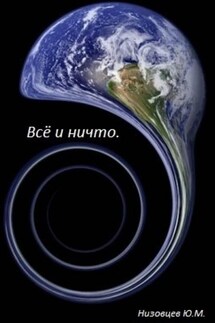Everything and nothingness - страница 10
However, Hume, like most of thinkers, concentrates the attention not on consciousness, and on the person, and this circumstance, naturally, leads him to not quite adequate conclusions: "… on what base we should think that the same forces will be always combined with the same felt qualities. Therefore, the principal in life is not the mind, but a habit. Only it forces mind in all cases to assume that the future corresponds to the past. How easy did not seem this step, mind never for all eternity would not be able to make it" [11, p. 22]
One can hardly argue with Hume that experience, the habit generated on its basis that is an important factor in human life, the more that Hume rightly pointed out existence of many unknown to us Forces that involves for the person a support preferably on known and clear to him.
Nevertheless, here Hume pulls together the highest consciousness inherent in the person, with the lowest consciousness, belonging to the living beings without self-consciousness. The living beings without self-consciousness really only adapts to the environment by trial and error, accumulating over many generations of genetic memory that allows them to coexist satisfactorily with the environment and to struggle with competitors on the basis of accumulated experiences and genetic memory. But all this doesn't allow living beings without self-consciousness to raise above the environment – in a result, essential change of the environment leads to death of the whole types.
In contrast to the lower consciousness of the living beings without self-consciousness, the higher consciousness of the person is characterized primarily not by mind, which is inherent in all living things in one form or another as centers that process information, incoming from sensations, but by awareness of yourself itself, which implies not just the adoption of the information from sensations and more or less adequate reaction to it, but and the subsequent conscious change of everything that manifests before him and in him.
For this purpose the consciousness in the person has a set of means: imagination, extensive databases, human interaction, intellection of all its forms, purposeful skilled verification of the arriving information, formulation and consolidation of regularities, deduced on the basis of experience and logical processing of information, aspirations for the new, the unknown, producing upheavals in life on the basis of inventions and utilization of fundamental discoveries, etc.
Therefore the habit characteristic only for the layman, who muffles aspirations of own consciousness to the unknown, who prefers to live within already the tested, but not for not strangled consciousness, who always seeks to overcome any circumstances at any cost.
Following Berkeley, Avenarius, denying existence independent of human consciousness reality, believes in this regard that truth is not compliance of consciousness to objective reality, but it is a result of coincidence of the perception of the majority, consistency of data, aspiration to integrity of system of data or as the coherence of sensations: “Here we only noted aspiration for a higher unity, because in it lurks the aspiration to think in the concept of a coherent whole. We could note this fact and on dualism, so as after all its division of the world into two opposites testifies to the thinking, which is addressed to integer; but we thought that the aspiration to finite, higher unity better expresses the need thinking of the totality of things, as understood" [3, §39]; “The final result of our analysis concurs—although not absolutely (durchgehend) in the measure of the various points of view—with that reached by other investigators…” [12, p. 120].









